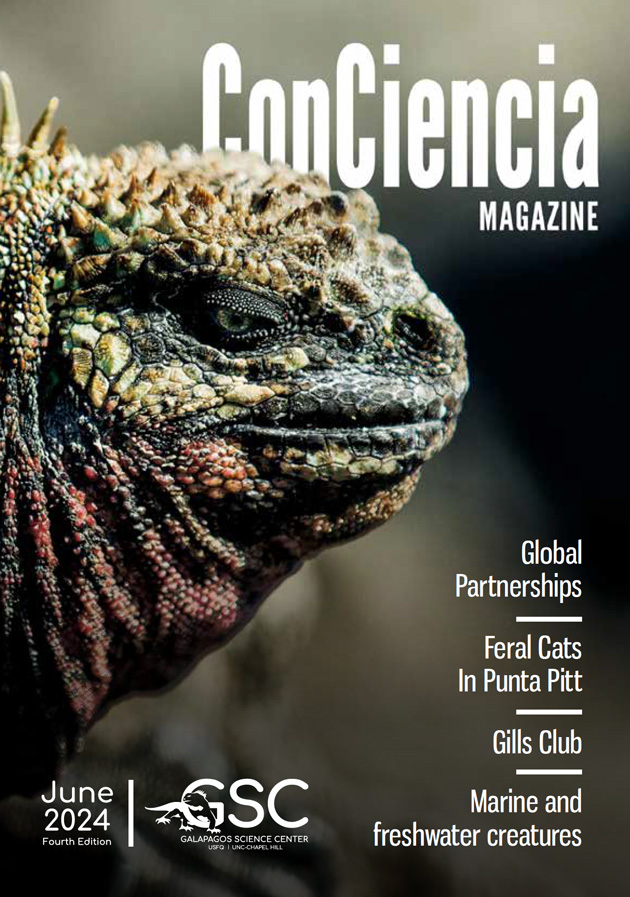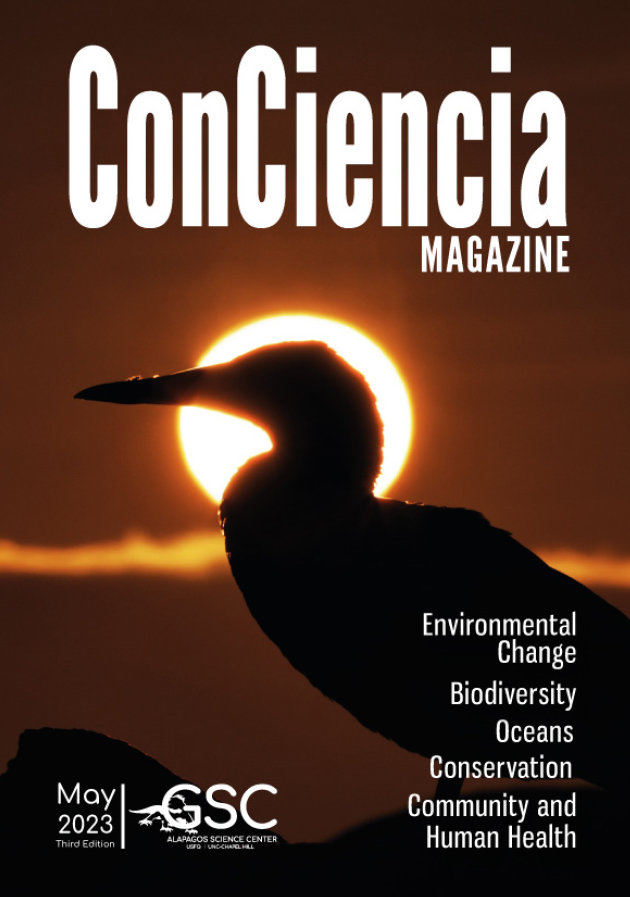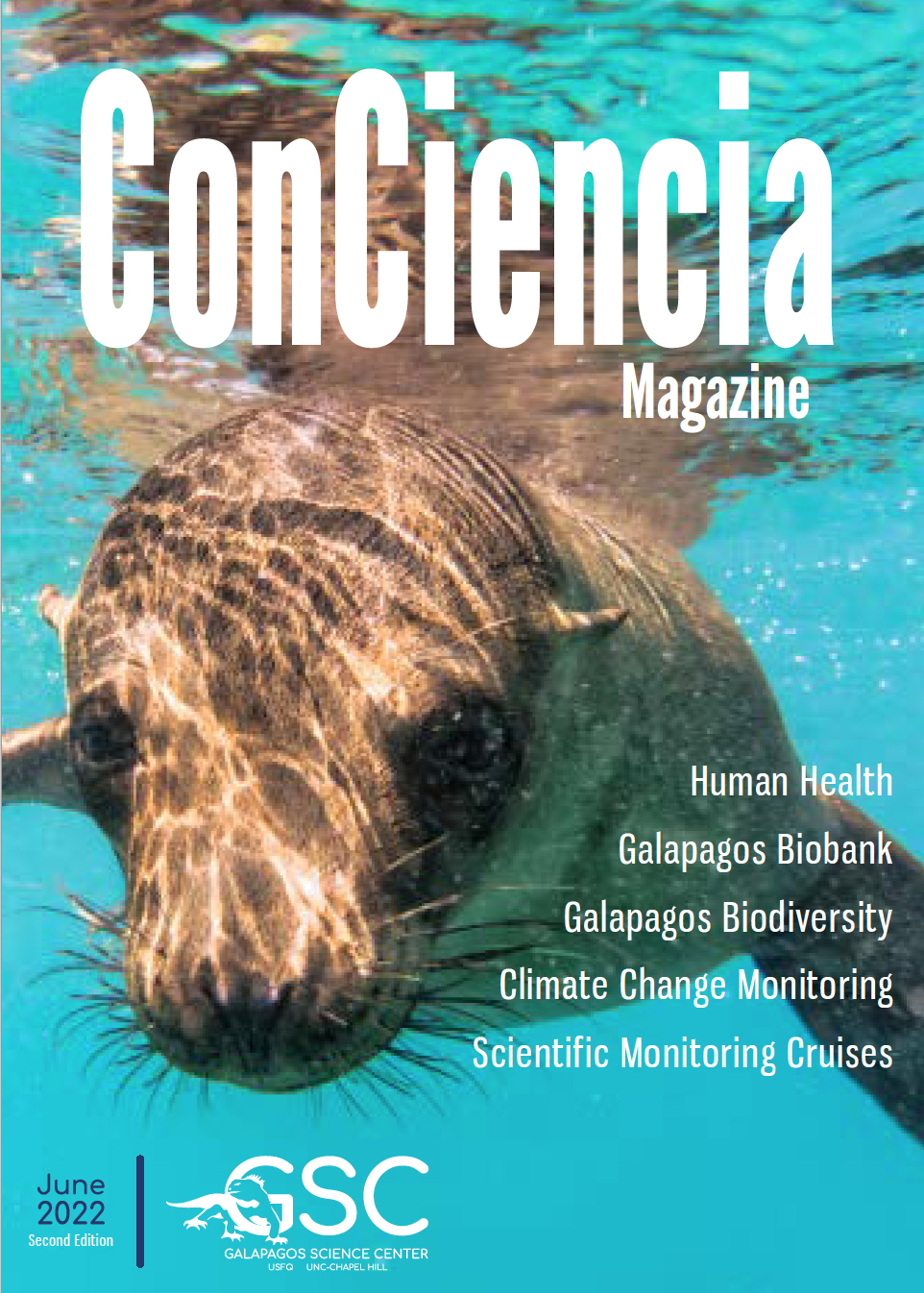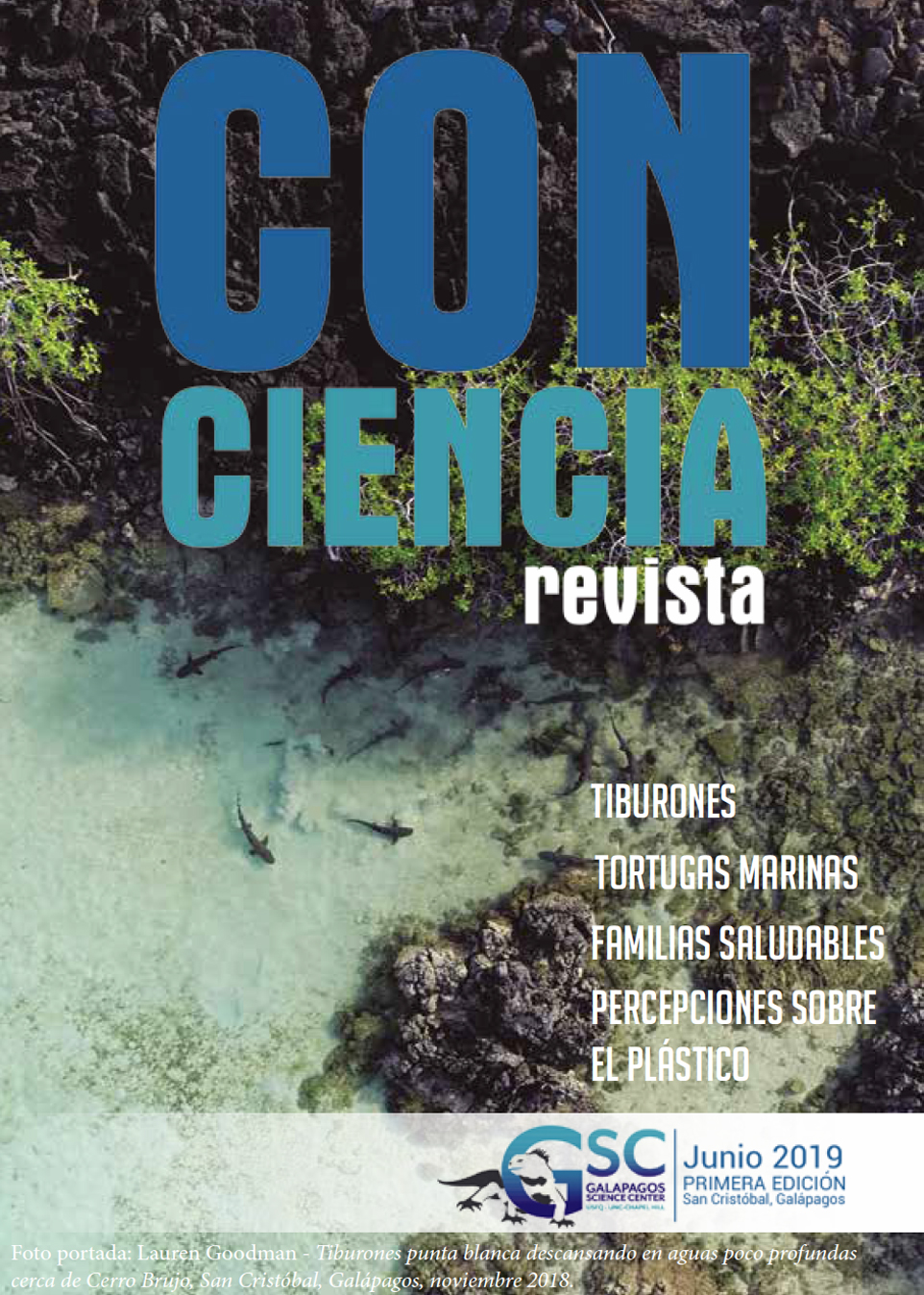NEWS & EVENTS
LATEST NEWS
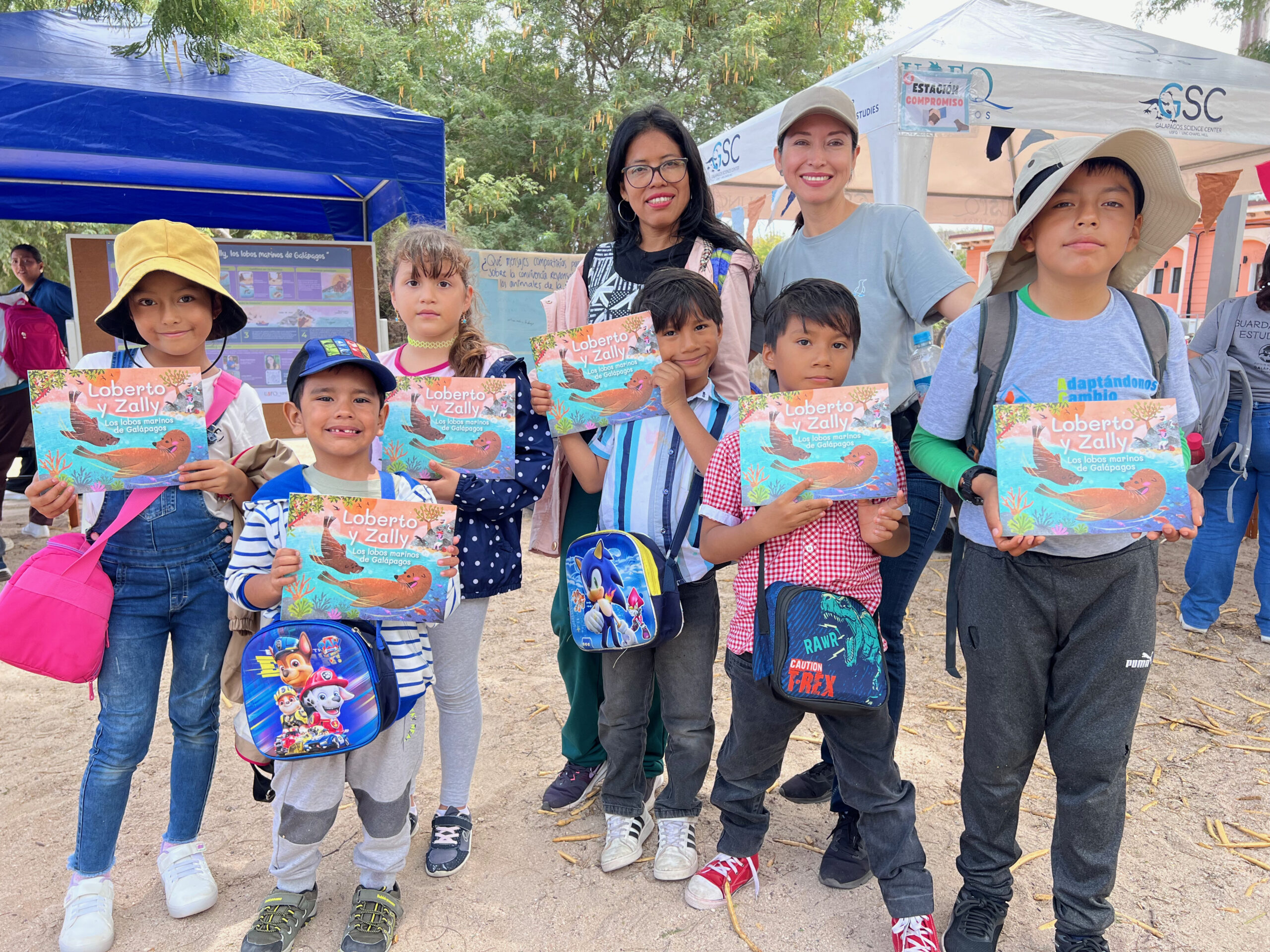
Connecting the Community with Nature: A Galápagos conservation program celebrates the successful completion of its sixth phase
With the goal of raising environmental awareness and promoting the conservation of the archipelago’s natural resources, the Galapagos Science Center (GSC) and the Galapagos Conservation Trust have been running the “Connecting with Nature Program” (CWNP) since 2019. This initiative has reached over 9,100 community members on San Cristóbal Island, through recreational and educational activities tailored to children, youth, and adults.
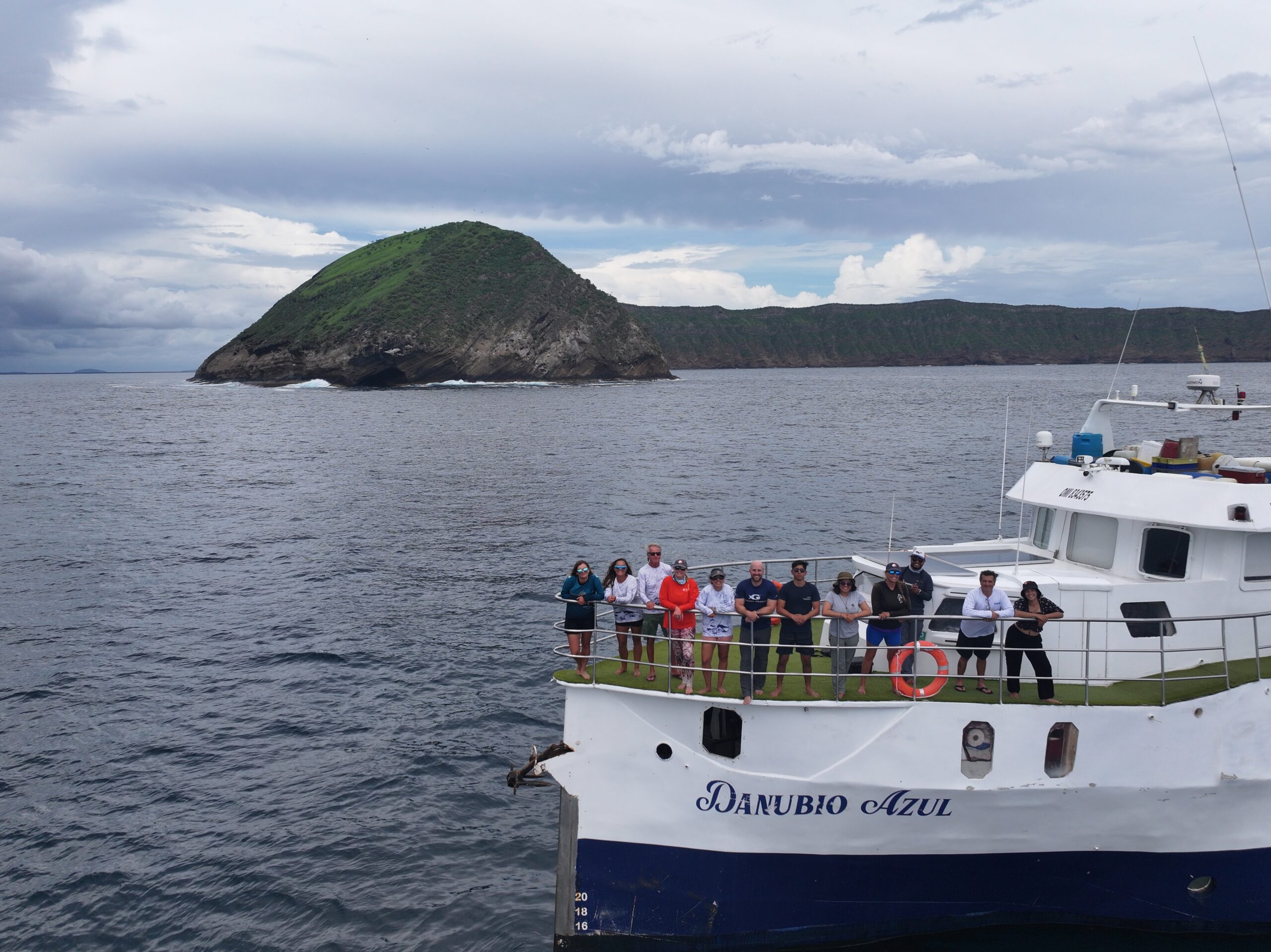
Scientific expedition studies several megafauna species in Galápagos
The Galápagos National Park Directorate (GNPD), in collaboration with Universidad San Francisco de Quito (USFQ), the Galapagos Science Center (GSC), and Proyecto Mantas Ecuador (PME), conducted a scientific expedition in the southern and eastern regions of Isabela Island. Supported by Brookfield Zoo Chicago’s Sarasota Dolphin Research Program, Mote Marine Laboratory, Georgia Aquarium, and the Ocean Tracking Network, the expedition provided valuable data for at least four research projects.
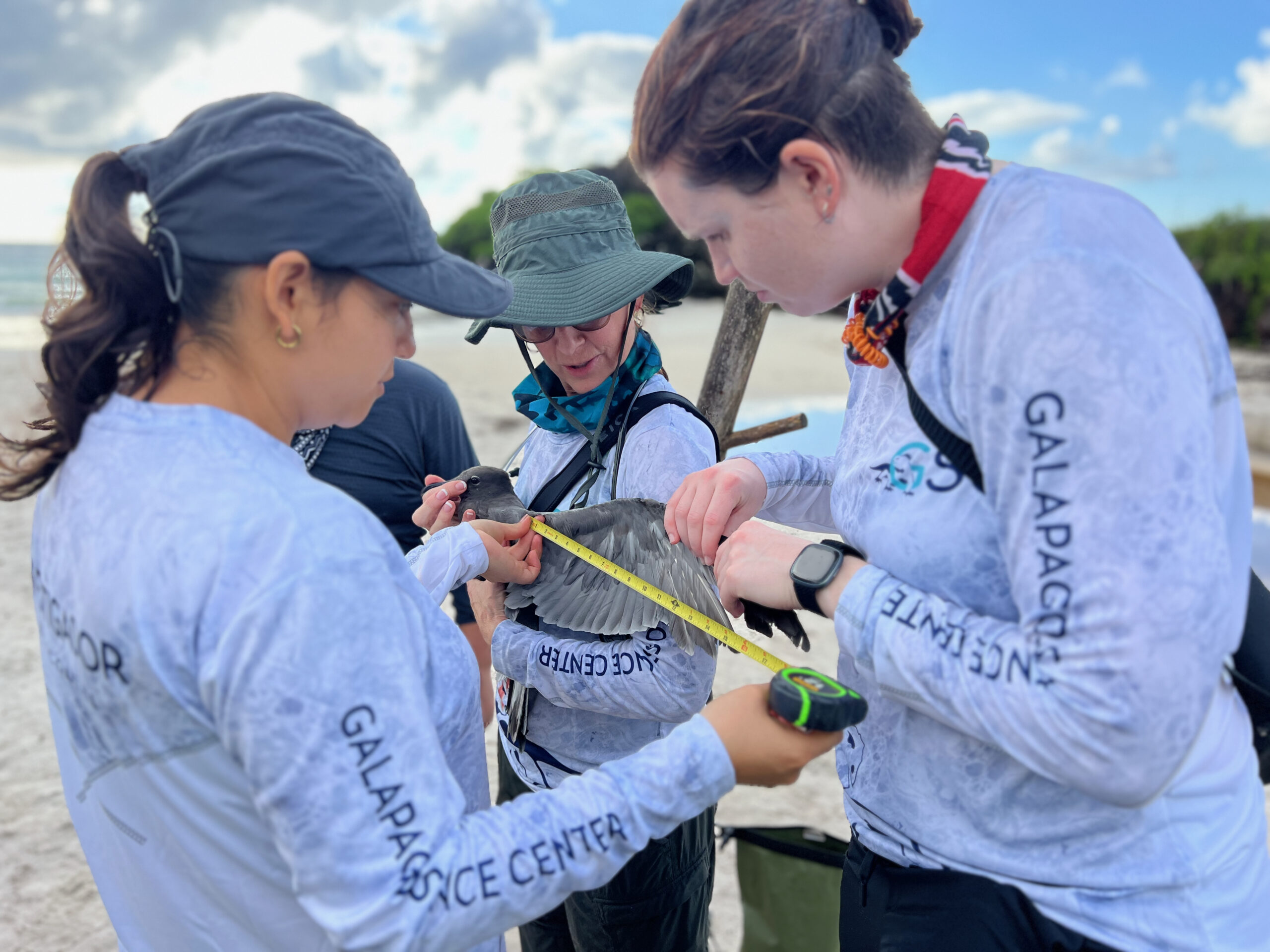
A Decade of ISLAVET: Science in action for the conservation of Galápagos
The ISLAVET program successfully concluded its tenth edition, solidifying its role as a key initiative for science and conservation in the archipelago. This year, a team of 33 participants, including 23 veterinary students and 10 veterinarians from the United States, Australia, the United Kingdom, Singapore, and the USFQ School of Veterinary Medicine, took part in field research under the leadership of Juan Pablo Muñoz, Diana Deresienski, Gregory Lewbart, and Daniela Alarcón from the Galapagos Science Center (GSC).
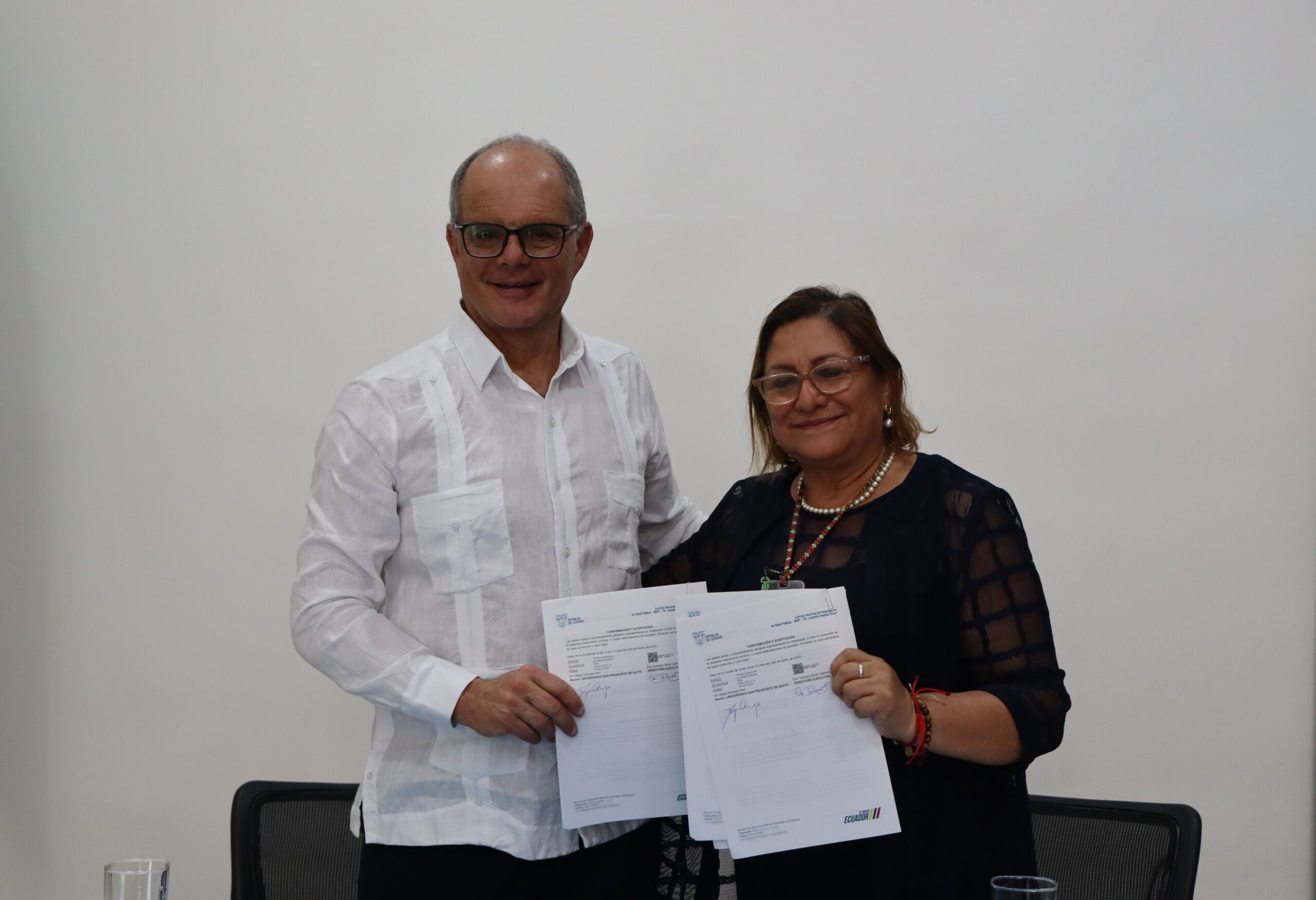
USFQ and INSPI sign an agreement to strengthen scientific research and academic training
Universidad San Francisco de Quito (USFQ) and the National Institute of Public Health Research (INSPI) ‘Dr. Leopoldo Izquieta Pérez,’ an institution under the Ministry of Public Health (MSP), have signed an inter-institutional cooperation agreement to strengthen scientific research and academic training in public health and wildlife conservation in Ecuador.
SCIENTIFIC ARTICLES

Exploring the trophic strategies of two large pelagic species inhabiting the Galapagos Marine Reserve
A new study conducted in the Galápagos Marine Reserve analyzed the diets of two pelagic species: the swordfish (Xiphias gladius) and the dolphinfish (Coryphaena hippurus). The aim was to understand how these populations, which share the same ecosystem, manage to coexist without directly competing for food.

Global tracking of marine megafauna space use reveals how to achieve conservation targets
An international team of over 400 scientists, including Alex Hearn, professor at Universidad San Francisco de Quito and researcher at the Galapagos Science Center, tracked more than 12,000 marine animals via satellite. The goal of this global effort was to accurately identify migratory routes and key areas used by different species for feeding, breeding, or movement, in order to generate essential information for their conservation.
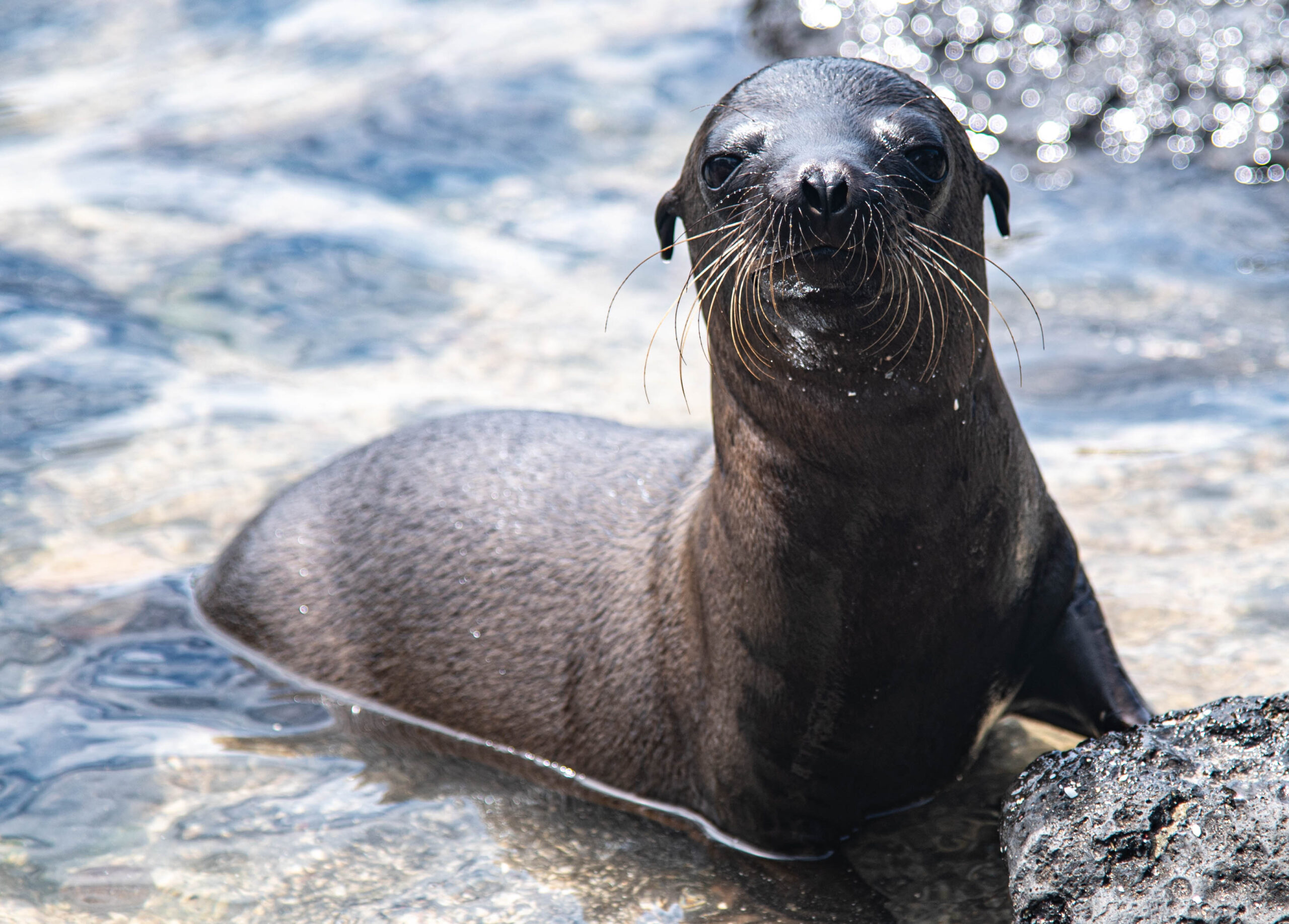
First epidemiological survey of Toxoplasma Gondii in Galapagos sea lions (Zalophus wollebaeki)
In this study, the exposure to the parasite Toxoplasma gondii was evaluated for the first time in Galápagos sea lions (Zalophus wollebaeki), a vulnerable and endemic species. Through serological, molecular, and histopathological analyses of samples from both live animals and carcasses, a high seroprevalence was identified in juveniles (79%), along with the presence of parasitic DNA in lung tissues.
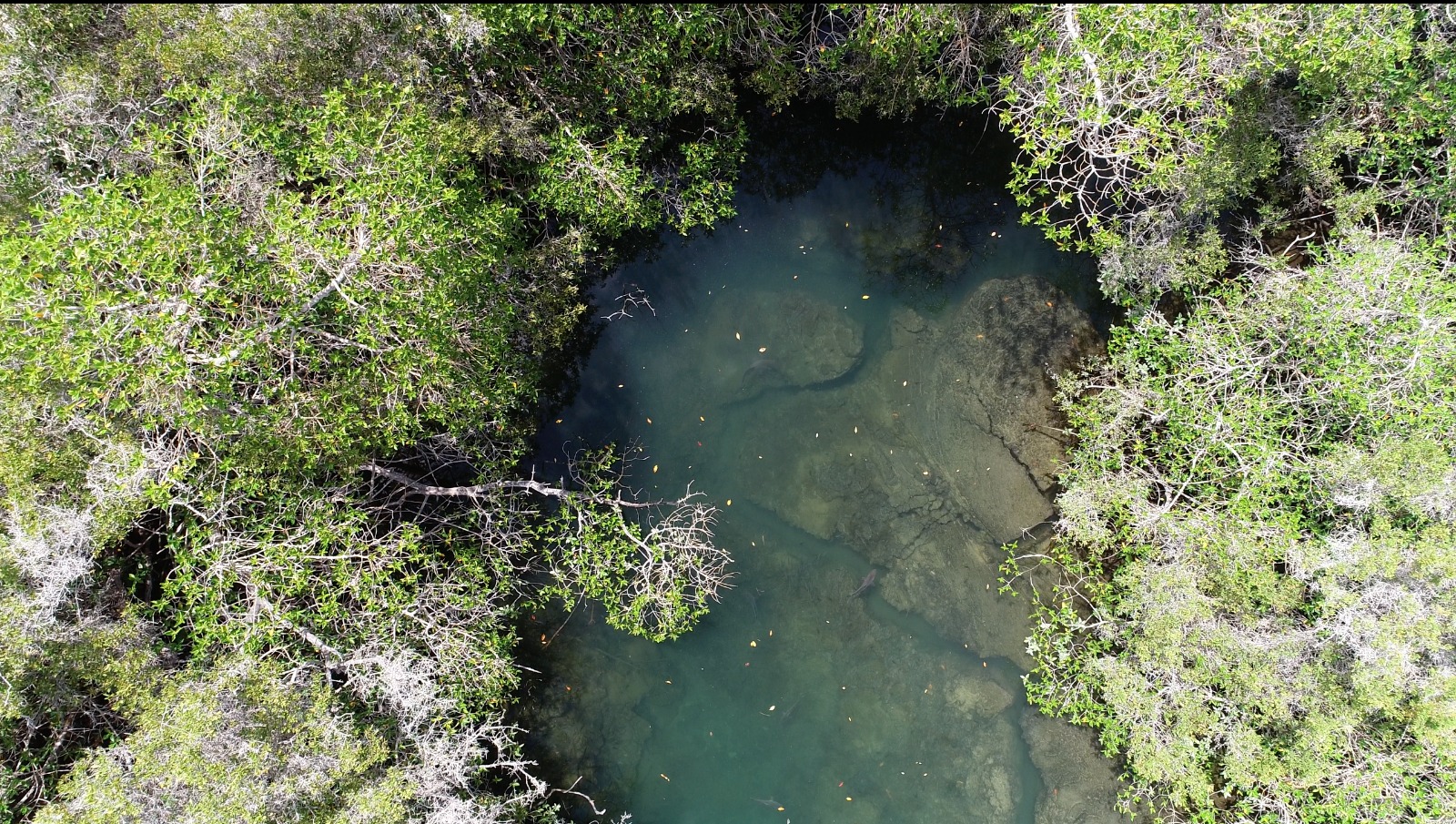
Characterizing juvenile blacktip shark (Carcharhinus limbatus) nursery areas in the Galapagos: new methods and understandings
A recent study conducted on San Cristóbal Island, Galápagos, successfully identified nursery areas of the blacktip shark (Carcharhinus limbatus) using drones as the primary tool. This research compared the use of unmanned aerial vehicles (UAVs) with traditional methods such as gillnets, revealing that drones allow for significantly higher and non-invasive detection of juvenile sharks in coastal areas.
EVENTS
7TH GALAPAGOS RESEARCH AND CONSERVATION SYMPOSIUM
Puerto Baquerizo Moreno, on San Cristóbal Island, will host the 7th Symposium on Research and Conservation in Galápagos. This important multidisciplinary event, which will take place on Monday, July 14 and Tuesday, July 15, 2025, at the Charles Darwin Convention Center, will be organized by the Galapagos Science Center, thanks to the sponsorship of the University of North Carolina at Chapel Hill and the Universidad San Francisco de Quito, and with the support of the Galápagos National Park.
6TH GALAPAGOS RESEARCH AND CONSERVATION SYMPOSIUM
The 6th Galápagos Research and Conservation Symposium took place on Monday, July 15 and Tuesday, July 16, 2024 at the Charles Darwin Convention Center on San Cristóbal, Galápagos. This important multidisciplinary event was organized by the Galapagos Science Center, with the sponsorship of the University of North Carolina at Chapel Hill and the Universidad San Francisco de Quito with the endorsement of the Galapagos National Park.
5TH GALAPAGOS RESEARCH AND CONSERVATION SYMPOSIUM
Puerto Baquerizo Moreno, on San Cristóbal Island, will host the 5th Galapagos Research and Conservation Symposium. This significant multidisciplinary event will feature scientific presentations and community-focused talks, showcasing research and initiatives related to conservation, environmental change, biodiversity and oceans, health, and community initiatives.
World Summit on Island Sustainability
In 2022, the Galapagos Science Center (GSC) and the broader UNC & USFQ Galapagos Initiative celebrated its 10th Anniversary. The GSC hosted the World Summit on Island Sustainability on June 26–30, 2022 at the Galapagos Science Center and the Community Convention Center on San Cristobal Island.
Read our Epub Magazine 2024 Edition
Read our Epub Magazine 2023 Edition
Read our Epub Magazine 2022 Edition

